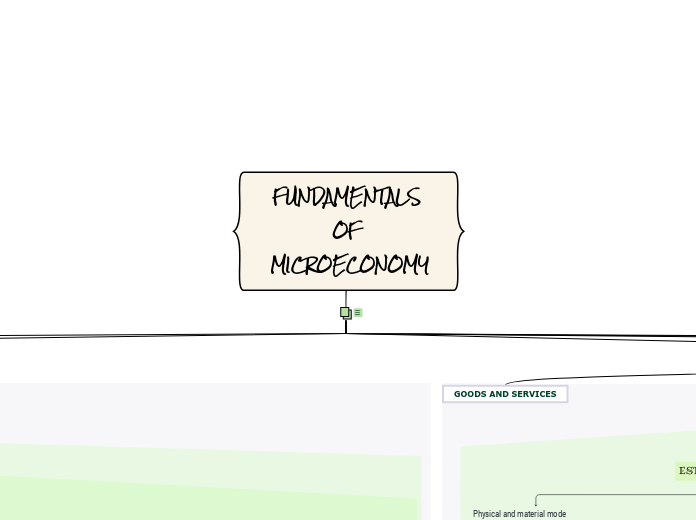przez Orozco Valdez Marycruz Alexia 3 lat temu
283
FUNDAMENTALS OF MICROECONOMY

przez Orozco Valdez Marycruz Alexia 3 lat temu
283

Więcej takich
OROZCO VALEZ MARYCRUZ ALEXIA 1EM7
Set of payments made by consumers and businesses. The former, to acquire goods and services, and the latter, to pay workers for services rendered.
TIPOS
MONETARIO
El flujo monetario tiene que ver con el dinero que va desde unos agentes a otros a cambio de esos factores de producción o bienes y servicios.
REAL
El flujo real hace referencia a los factores de producción, y a los bienes y servicios.
Economic agents, family, company and state. Three types of agents are involved in the activity of economic production and distribution: families, companies and the State.
Add your text
CONTINUIAD
Ordena sus preferencias y diferentes alternativas de consumos
REFLEXIVILIDAD
Identifica la solución y la valora por si misma
Economic Rationality is an economic theory that refers to the decisions made by the consumer when choosing goods and services, compared to their available resources. In this Theory, it is assumed that the consumer knows all the alternatives on the market, values them and chooses the most optimal for his situation.
PREFERNCIAS
AXIOMAS
Completitud
Completas
Reflexivo
PRICIPIOS
Entre extrema, elige combinaciones
Entre + elige -
Calidad, precio, contidad
SERVICES
It is intangible that occurs instantly and directly.
CARACTERISICAS
INSEPARABILIDAD
Como consumo como producción son totales o simultáneos.
HETEROGENEIDAD
Similares pero no idénticos
INTANGIBILIDAD
ESTATE
TWO CONDITIONS ARE NECESSARY
Condiciones objetivas para aprovechar obajetos
Relación de propiedades físicas de una cosa y necesidad del individuo
Physical and material mode accessible to the senses capable of satisfying a need.
OPPORTUNITY COST
It is the amount of resources that we imaginarily stop receiving when making a decision between two or more options.
CARACTERISCICAS
Coste de oportunidad creciente
Los recursos no son productivos de forma equitativa.
Los costes de oportunidad crecientes sobrevienen cuando los recursos no son homogéneos
No se encuentran en la misma proporción para la producción de los productos
Coste de oportunidad constante
De esta manera se mantienen iguales las posibilidades de producción y consumo.
Todos son de igual calidad, por lo que las empresas renuncian a una cantidad de producto para producir una nueva cantidad más.
Se producen cuando los recursos utilizados para la producción son sustituidos unos por otros sin ningún tipo de constancia
IMPORTANCE
Decision making
CHOICE
This is a process that contains two aspects.
The second is a selection criteria called preferences.
The first is that of opportunity; that encompasses a set of things that are available.
It refers to the act of preferring an object or among a variety that has different possibilities of use.
It is a decision that people make according to many factors; such as cultural ones, by imposing groups or prices.
It is society that decides how scarce resources will be used to achieve the maximum satisfaction of its needs.
It is the principle by which different and complex processes that occur in the area can be explained.
Scarcity is the lack of resources necessary to satisfy one or more needs, which may or may not be key to survival.
CAUSES
Accumulation
It may be that a sector of the population has appropriated or consumed the good in question, leaving the rest without being able to supply themselves.
Supply reduction or cut in production:
It may be that the company has had to cut its production process due to extraordinary circumstances.
Increased demand
Purchase requirements increase above forecast.